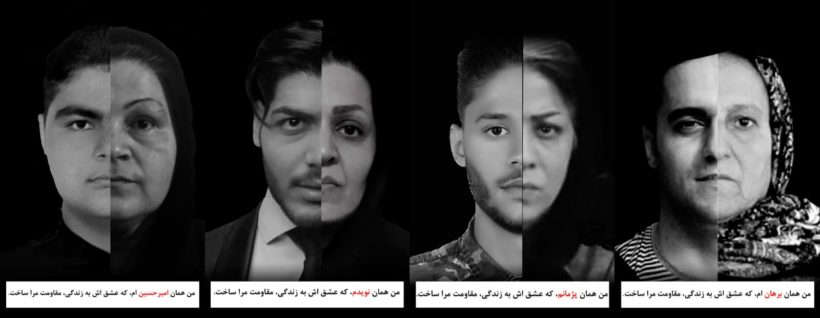Women’s Day in Iran is a strange day. On the one hand, it is a country traditionally shrouded in patriarchy and, on the other, its people have to deal with the laws of Islam in the smallest detail of their daily lives; for this reason, the path of women to achieve equality is very challenging. In addition to these circumstances, we live under a regime of dictatorship that does not tolerate dissenting opinions and speeches or any criticism. It kills, kidnaps opponents and critics, and with every act of injustice, a woman grieves. These conditions make the road difficult for Iranian women. Despite the rapid development of the media in the modern era and the countless mothers who have made extraordinary achievements in the last four decades in Iran, there has been no international media to make their voices heard. In the 1960s, thousands of mothers, many of whom are no longer alive, witnessed the execution of their sons. Thousands of children of Kurdish mothers were abducted and executed during Ayatollah Khomeini’s jihad against Kurdistan.
In 1999, many young students were killed or abducted during the attack carried out by Iranian forces. Many mothers are still searching for their children. Many others lost their loved ones in the 2009 protests against the election results. Others lost their children in the December 1996 protests. Still other mothers lost their children during the November 2019 protests, when their children were killed in what was dubbed the “November Massacre”. There are thousands of other crimes carried out, such as people sentenced to death. Every day a mother is deprived of her child, a wife of her husband and a sister of a brother. For four decades, these women and mothers have been living alone with their pain in a society, in which a system of Islamic dictatorship coexists with patriarchy.
Today, due to the conditions created by society and the government, these women and mothers know that they will be vulnerable if they are left alone. They know that the only way forward for them is solidarity and unity. After the bloody November 1998, the grieving mothers of this massacre decided to unite. Despite the many linguistic and cultural differences in Iran, mothers from different ethnic regions of Iran, such as Kurdish, Baloch, Persian, Turkish, Arab, Lors and Gilak, united to have a stronger voice against the tyranny of the patriarchal dictatorship and demand justice. These mothers are changing the male discourse in Iran through their process of seeking justice. These mothers are known as “the mothers demanding justice in Iran”.
Their numbers are increasing day by day, and their voices are increasingly heard among the Iranian people. So steadfast are they in their quest for justice that many in Iran’s patriarchal society have sympathised with them. Mothers demanding justice in Iran unanimously cry out on this year’s International Women’s Day: “Our sons are alive in us. They will never die because the cry for justice will never die. It will absorb the particles of time and overthrow the dictator. Finally, Mothers Demanding Justice in Iran asks the world’s media “if it is not time for them to echo our voice and make our cause known to the world”.










